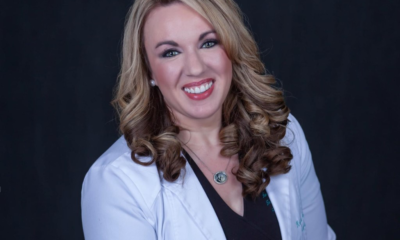abortion
Louisiana Woman’s Cross-State D&C Journey Sparks Urgent Call for Answers

In the early hours of a Thursday in August, Tabitha Crowe discovered she was experiencing a miscarriage during a visit to her parents in southern Louisiana. Covered in blood and grappling with dizziness from blood loss, she was rushed to a nearby hospital. “I didn’t even know I could bleed that much,” Crowe recounted, detailing her harrowing experience to States Newsroom.
Throughout the following days, her struggle intensified. Crowe reported passing blood clots the size of baseballs while enduring significant pain at two different hospitals. Despite her requests, she was not offered the standard miscarriage procedure typically recommended in such cases, raising alarm about the changing landscape of reproductive healthcare in restrictive states like Louisiana.
Statistics reveal that about 10 to 20% of known pregnancies in the U.S. end in miscarriage. According to the American College of Obstetricians and Gynecologists (ACOG), most miscarriages are completed naturally, but when intervention is necessary, it usually involves specific medications or procedures such as dilation and curettage (D&C). However, in states like Louisiana, where strict abortion laws prevail, many women are reportedly being denied timely care.
The situation stems from a climate of fear among healthcare providers, who risk legal repercussions under stringent laws prohibiting abortion, unless the woman’s life is at stake. This shift has led to an increase in more invasive and riskier procedures for patients facing non-viable pregnancies. Doctors report feeling compelled to wait until patients’ conditions become critical before intervening, which can exacerbate health risks.
Crowe’s experience encapsulates this dilemma. During her hospital visits, she sensed an unwillingness from medical staff to engage with her requests for a D&C. “I had a sense it was because of the abortion laws,” she explained, attributing her inadequate care to the prevailing legal environment affecting medical decisions.
This potential link between abortion bans and adverse health outcomes has become increasingly evident. An investigation by ProPublica highlighted several deaths attributed to barriers associated with these laws, underscoring a growing concern among advocates for reproductive health.
In Georgia, public health scrutiny intensified when two women’s deaths were linked to a recent six-week abortion ban. In the wake of such findings, state officials dismissed the members of the Maternal Mortality Review Committee, prompting speculation about the means by which states manage disclosures of health-related outcomes.
Meanwhile, in Louisiana, Crowe ultimately received the care she needed only after traveling back to Florida. There, she underwent a D&C at Eglin Air Force Base Hospital, which she described as a relief from the torment she experienced earlier. “For me to have a miscarriage for the first time, it’s already a very scary process,” she said, reflecting on the lack of appropriate care she received.
The turning tide in her perspective towards reproductive rights is profound. Once staunchly pro-life, Crowe now champions the importance of accessible healthcare for women facing similar challenges. “I couldn’t grieve because I was in so much pain,” she lamented, recognizing that laws surrounding abortion impact not just terminative choices but also critical healthcare decisions during miscarriage.
As states grapple with the implications of abortion legislation, individuals like Crowe continue to shed light on the urgent need for reform in reproductive healthcare. The complex interplay of legal mandates and medical practice poses significant risks to women’s health, prompting calls for a reevaluation of existing policies affecting care in these situations.


















